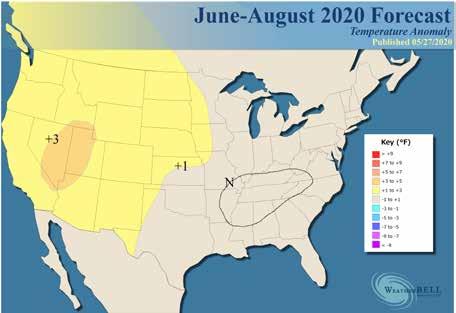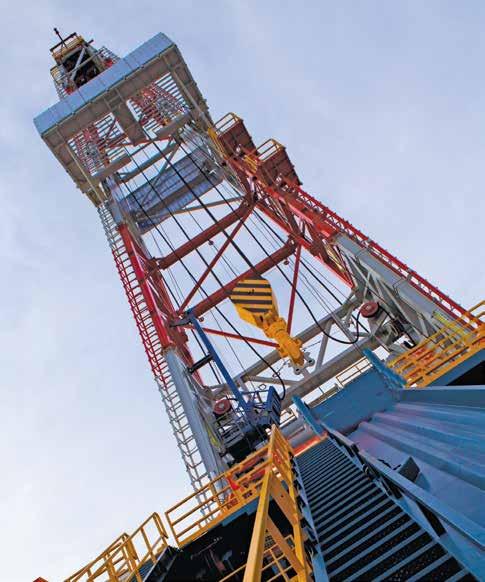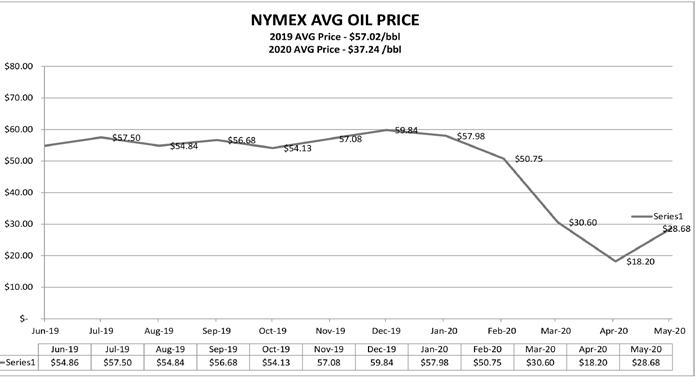
3 minute read
Mark Clark
Mark D. Clark
Spilman Thomas & Battle, PLLC
Pipeline Progress
If you have been following the developments related to the construction of the Mountain Valley Pipeline (“MVP”) and Atlantic Coast Pipeline (“ACP”), you know that groups who oppose the construction of those pipelines (and any other natural gas pipelines for that matter) have had some success in slowing the construction of those pipelines. We can report some good news on that front because on June 15, 2020, the U.S. Supreme Court released its opinion that removes one impediment to proceeding with construction of both pipelines.
In the case of ACP, at issue was authorization to construct a 1/10 th mile portion of the pipeline far under the Appalachian Trail within the George Washington National Forest where “the workstations for laying the challenged segment of the pipeline will be located on private land, approximately 1,400 feet and 3,400 feet, respectively, from the Trail. Atlantic plans to use a method of drilling that will not require the company to clear any land or dig on the Trail’s surface. The entry and exit sites will not be visible from the Trail, nor will any detour be required. And, the final pipeline will lie approximately 600 feet below the Trail.”
In the consolidated cases United States Forest Service, et al., v. Cowpasture River Preservation Association et al., and Atlantic Coast Pipeline, LLC, v. Cowpasture River Preservation Association, et al., the Court held “that the Department of the Interior’s decision to assign responsibility over the Appalachian Trail to the National Park Service did not transform the land over which the Trail passes into land within the National Park System. Accordingly, the Forest Service had the authority to issue the permit here.” Thus, ACP and MVP should have been allowed to construct their respective pipelines under the Appalachian Trail when the special use permits were issued in 2018.
Instead, Cowpasture River Preservation Association, Highlanders for Responsible Development, Shenandoah Valley Battlefields Foundation, Shenandoah Valley Network, Sierra Club, Virginia Wilderness Committee, and Wild Virginia filed a petition for review in the Fourth Circuit challenging the issuance of the special use permits. They asserted that the issuance of the special use permit for the rightof-way under the Appalachian Trail, as well as numerous other aspects of the Forest Service’s regulatory process, violated the Mineral Leasing Act. The Fourth Circuit decided in favor of the opponents to the pipelines by taking the position that the U.S. Forest Service lacked authority to issue the special use permits. The Fourth Circuit decision necessitated the appeal to the U.S. Supreme Court.
The Court’s opinion identifies the various federal laws implicated in the case, such as the 1911 Weeks Act, the 1968 National Trails System Act and the 1920 Leasing Act. The opinion also provided a rather esoteric and lengthy explanation of easement law and rights which is a central basis for the decision. For those readers who are interested, a copy of the decision can be found at https://www.supremecourt.gov/opinions/19pdf/18-1584_igdj.pdf.
But the Court’s decision merely lifts one major obstacle to the 600- mile pipeline, which could carry as much as 1.5 billion cubic feet of natural gas per day from West Virginia to buyers in North Carolina and Virginia. The $8 billion pipeline, a joint venture of Dominion Energy and Duke Energy, is still held up in court because the U.S. Court of Appeals for the Fourth Circuit has vacated several other permits necessary for the project.
Complicating the challenges to completing ACP and MVP is the fact that on May 11, 2020, the U.S. District Court for the District of Montana in Northern Plains Resource Council, et al. v. Army Corps of Engineers upheld its decision to vacate most aspects of NWP 12 and prevent the United States Army Corps of Engineers from authorizing pipeline construction activities using the nationwide 12 permit (See, article by Joseph Unger in the June edition of IOGA News). Since then the Ninth Circuit Court of Appeals denied a petition to stay the district court’s decision pending appeal because “Appellants have not demonstrated a sufficient likelihood of success on the merits and probability of irreparable harm to warrant a stay pending appeal.” Following that May 28, 2020 order, the West Virginia Attorney General, along with a group of other interested parties, filed a petition with the U.S. Supreme Court seeking a stay of the Montana District Court decision pending appeal. That request remains pending.
The ACP and MVP pipelines are important projects for providing additional markets for natural gas Progress Continued on page 17





